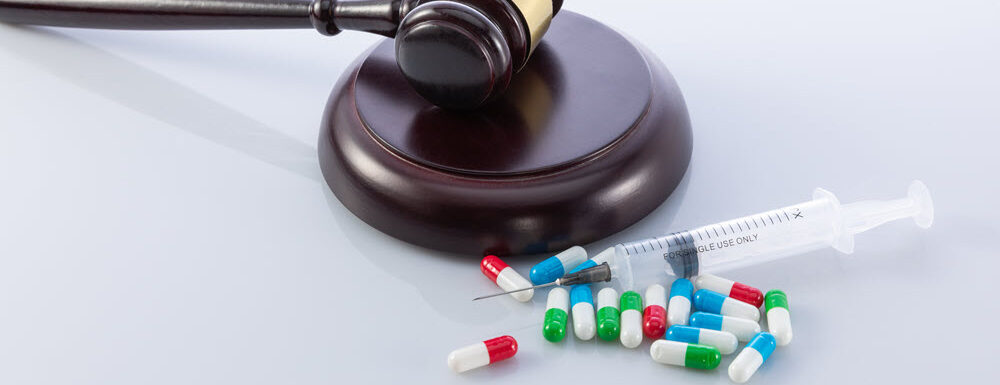On December 8, 2023, a significant legal development unfolded in the pharmaceutical industry. Louisiana U.S. District Judge James Cain Jr. ruled that semaglutide and GLP-1 lawsuits against pharmaceutical companies, could proceed. This pivotal decision centers on cases concerning GLP-1 medications, a class of drugs that includes semaglutide, which has been increasingly scrutinized for potential severe side effects.
This ruling stands as a critical moment for potential plaintiffs who have experienced adverse reactions from these medications. It represents a legal breakthrough, offering a path for individuals affected to seek justice and recompense for their hardships. Judge Cain Jr.’s decision is not merely a legal milestone but a ray of hope for many who felt their voices were overshadowed by the influence of a pharmaceutical titan.
Overview of GLP-1 Medications and Associated Legal Issues
GLP-1 medications, including drugs like semaglutide, developed by Novo Nordisk, and terzapatide, developed by Eli Lilly, have become a focal point of legal and medical debate. Initially acclaimed for their efficacy in treating certain conditions, these drugs have recently been at the heart of legal disputes. The lawsuits allege that GLP-1 medications can lead to severe, and in some cases, irreversible side effects, which were insufficiently communicated to patients and healthcare professionals.
The legal challenges against Novo Nordisk primarily concern accusations of inadequate safety research and a lack of transparent warnings regarding the drugs’ potential dangers. The Louisiana court’s decision to let these lawsuits move forward highlights the seriousness of these accusations and the necessity for a comprehensive review of the safety of GLP-1 medications, alongside an evaluation of the pharmaceutical company’s duty to its consumers.
Reported Side Effects and Risks
The controversy surrounding GLP-1 medications, including semaglutide, primarily stems from a range of reported side effects. Patients have reported severe gastrointestinal issues, pancreatitis, and even an increased risk of certain cancers.
These side effects, particularly alarming in their severity and potential for long-term health implications, have become the crux of the ongoing lawsuits. Plaintiffs allege that not only were these risks present, but also that they were not adequately communicated, leaving patients unprepared and unprotected.
The risks associated with GLP-1 medications have raised significant concerns about patient safety and the ethical obligations of pharmaceutical companies to provide comprehensive information about their products.

Details of Ongoing GLP-1 Medications Lawsuits
The lawsuits against Novo Nordisk concerning GLP-1 medications are multifaceted, involving numerous plaintiffs from various backgrounds. The legal arguments hinge on allegations of negligence in safety testing and failure to adequately warn about potential severe side effects.
Plaintiffs argue that Novo Nordisk, despite being aware of these risks, did not take sufficient steps to inform the medical community and the public. The lawsuits seek compensation for damages, including medical expenses, lost wages, and pain and suffering. Furthermore, they call for stricter regulatory oversight and better safety protocols to prevent similar situations in the future.
The outcome of these lawsuits could set a precedent for how pharmaceutical companies are held accountable for the safety of their medications.
Eligibility Criteria for Plaintiffs
The eligibility to join the lawsuit against Novo Nordisk and Eli Lilly for GLP-1 medication side effects hinges on specific criteria, particularly regarding the timing of the side effects. Potential plaintiffs must demonstrate a clear correlation between their use of the medication and the onset of adverse health issues. This involves:
- Timing of Medication Usage: Plaintiffs should provide detailed information about when they started and stopped using the GLP-1 medication. This timeline is crucial to establish a direct link between the drug usage and the side effects.
- Onset of Side Effects: It is essential to document when the side effects began, especially in relation to the period of medication use. For instance, if severe gastrointestinal issues or signs of pancreatitis emerged while on the medication or shortly after discontinuing it, this could strengthen the case.
- Medical Documentation: Detailed medical records that chronicle the timing and nature of the side effects are pivotal. This includes doctor’s notes, hospital records, and any other medical documentation that can corroborate the timeline of symptoms and their severity.
- Exclusion of Other Causes: To establish that the GLP-1 medication was the primary cause of the side effects, plaintiffs must demonstrate that other potential causes were reasonably excluded. This might involve showing that there were no other significant changes in medication, lifestyle, or health around the time the side effects occurred.
These criteria ensure a robust connection between the GLP-1 medication and the adverse effects experienced, thereby solidifying the eligibility of plaintiffs to participate in the lawsuit.
Conclusion and Call to Action
The legal battles surrounding GLP-1 medications, including semaglutide, represent a critical juncture for patient rights and pharmaceutical accountability. The ruling by Louisiana U.S. District Judge James Cain Jr. to allow these lawsuits to proceed has opened a window of opportunity for those who have suffered severe side effects. If you or a loved one has been adversely affected by these medications, this is a pivotal moment to seek justice and compensation.
For those eligible, joining the lawsuit against Novo Nordisk and Eli Lilly is not just about individual compensation; it is about holding major pharmaceutical companies accountable for the safety of its products and ensuring that future patients are better informed and protected. It’s a step towards demanding greater transparency and responsibility in the pharmaceutical industry.
If you meet the eligibility criteria, particularly regarding the timing and nature of your side effects, you can sign up online HERE. Remember, acting swiftly is key due to the statutes of limitations governing legal proceedings.
By standing up for your rights, you contribute to a larger cause — advocating for patient safety and corporate accountability. The decision to join this legal action can be a powerful statement in the pursuit of justice and a step towards preventing similar scenarios for future patients.

